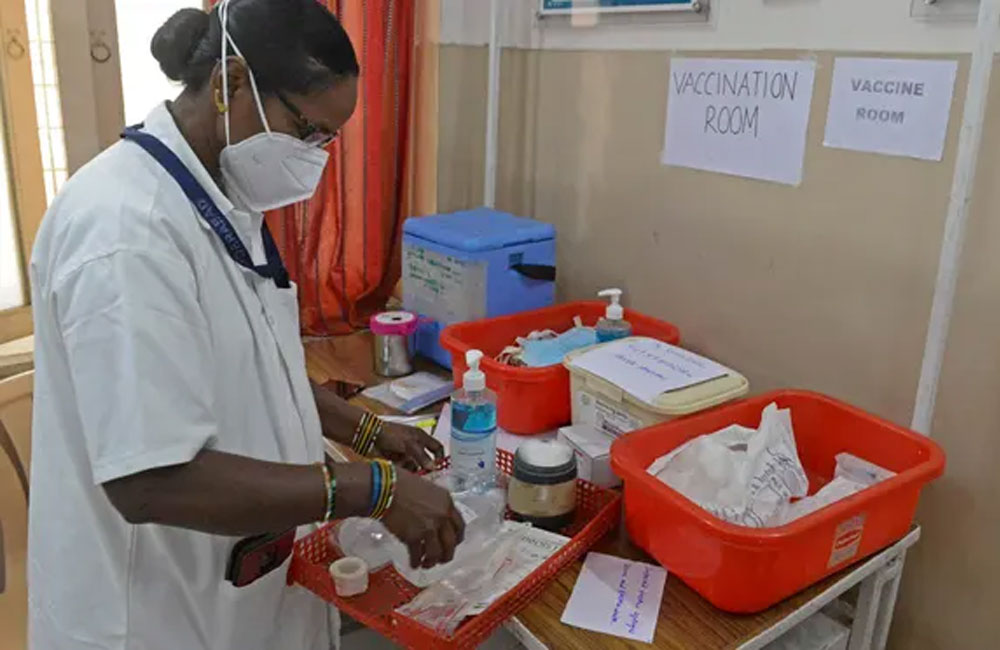The information and broadcasting minister, Prakash Javadekar, said on Saturday that the vaccine had been given the green light on Friday.
It is the first Covid-19 vaccine to be approved for emergency use by India, which has the highest number of infections after the US.
The decision came on the same day as a nationwide drill for vaccine delivery, in which health workers received dummy vaccines at each of the centres to be used across the country.
The health minister, Harsh Vardhan, said the exercise would help build expertise “so that the upcoming vaccination drive may proceed without any glitch”. He has also called for a campaign to counter “misleading rumours” that may put people off getting the vaccine.
Javadekar said at least three more vaccines were waiting to be approved – the local company Bharat Biotch’s Covaxin, Zydus Cadila’s ZyCoV-D and Russia’s Sputnik-V.
“India is perhaps the only country where at least four vaccines are getting ready,” he said. “One was approved yesterday for emergency use, Serum’s Covishield.” he said. The Oxford/AstraZeneca shot is being made locally by the Serum Institute of India (SII).
India’s Central Drugs Standard Control Organization (CDSCO) is expected to announce the dosage and other details later. It has applied for a two full-dose regime about 28 days apart.
The Oxford/AstraZeneca vaccine, which was granted its first approval by Britain on Tuesday, is cheaper and easier to use than some rivals, major advantages in tackling a pandemic that has claimed more than 1.8 million lives worldwide.
There has been uncertainty, however, about its most effective dosage since data published in November showed a half-dose followed by a full dose had a 90% success rate while two full shots were 62% effective.
India’s regulator has also received an emergency-use application for the vaccine made by Pfizer and the German firm BioNTech, the first to secure regulatory approval in the west.
India has reported more than 10 million Covid cases, though its rate of infection has come down significantly from a mid-September peak. The country hopes to inoculate 300 million of its 1.35 billion people in the first six to eight months of the year.
SII, the world’s biggest producer of vaccines, has already stockpiled about 50m doses of the Oxford/AstraZeneca product, which will be sold to the government at about 250 rupees (£2.50) a dose and 1,000 rupees on the private market.
Britain and Argentina approved the Oxford/AstraZeneca vaccine this week, and the World Health Organization granted emergency validation to the Pfizer/BioNTech vaccine on Thursday.
India has approved the Covid-19 vaccine developed by AstraZeneca and Oxford University, paving the way for a huge immunisation campaign in the world’s second most populous country.
Covishield is expected to be more widely used in India because it can be stored and transported under normal refrigeration. Pfizer’s product needs to be stored at ultra-low temperatures.
(The Guardian)
Comments
- No comments found

Leave your comments
Login to post a comment
Post comment as a guest